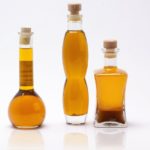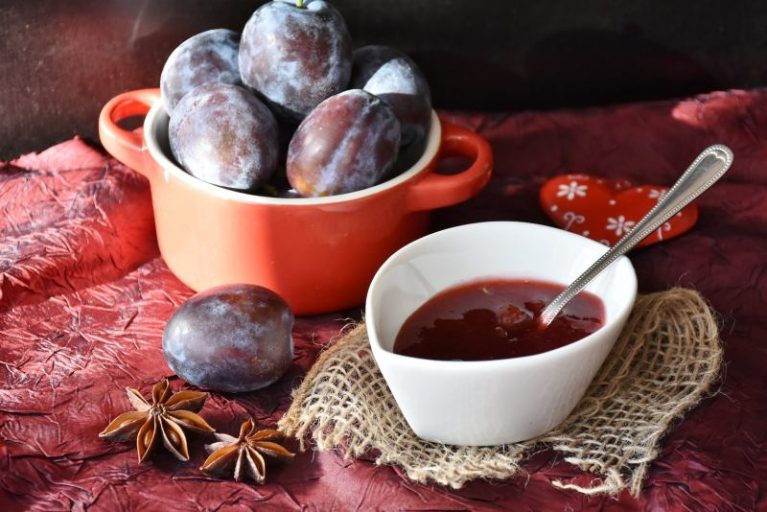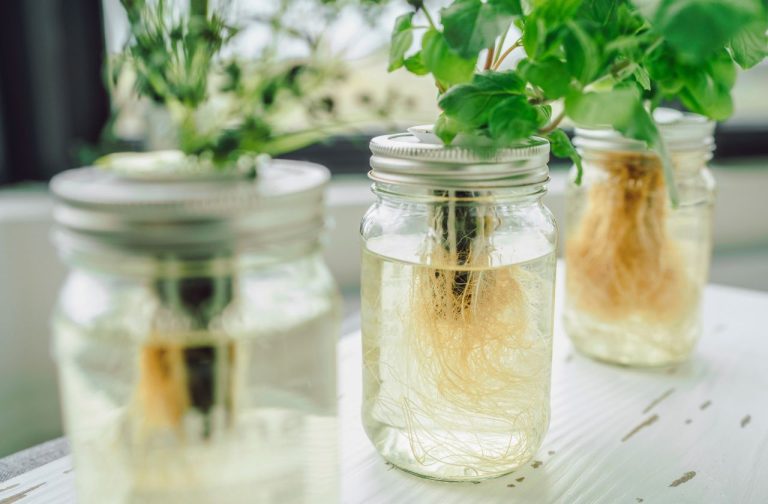Mullein – Medicinal Herb
I get commissions for purchases made through links in this post. View our Affiliate Disclaimer.
Mullein has been used for thousands of years for herbal medicine. Records from as far back as 2000 years report on its use for pulmonary conditions.
The mullein plant (Verbascum) is a biennial plant, which means it flowers every two years. Due to its prolific seed generation, it has earned a reputation as an invasive weed in most urban gardens.
Additional Essential Homestead Resources
✅ Medicinal Garden Kit - Grow medicine in your garden! A collection of seeds to get you started.
✅ Homesteaders Handbook - A printed book that covers all the basics for homesteaders.
✅ The Self-Sufficient Backyard - This book is an excellent resource for self-sufficiency on 1/4 acre!
✅ Into The Wild Survival Pack - Learn foundational survival skills every homesteader should know!
Mullein is a native plant to Europe, Asia and North Africa and has around 300 species . The most well-known of these being Common Mullein (Verbascum thapsus), probably due to its historical use in traditional medicine in many cultures across it’s distribution.
The Health Benefits of Mullein
The medicinal benefits of mullein were discovered many years ago, and have even been used in more modern medicines. It was well known for it’s ability to treat a wide variety ailments, but particularly chest and upper respiratory tract ailments. A traditional Irish remedy used fresh mullein leaves boiled in milk, consumed daily as a treatment for tuberculosis.
The uses for mullein are varied, but some of the more common ones are as follows:
- Respiratory Ailments – This is one of the most well-known uses of mullein. Taken as a tea, it can help with ailments such as dry cough, congestion and sore throat. Furthermore, it can help with inflammatory respiratory conditions, such as asthma and bronchitis.
- Antiseptic – Mullein has antibacterial properties which can be used to disinfect wounds, cuts, or scrapes. Crush the flowers into a paste, and apply it on your wound.
- Healthy Heart – Verbascum thapsus leaves have been shown to have an ability to reduce bad cholesterol and triglyceride levels. Experts are not sure how this works, but suggest that mullein may help reduce your risk of high cholesterol, hypertension and coronary heart disease.
Growing Mullein
Growing mullein is very easy, even for the inexperienced gardener! It can be grown in a variety of soil types and does not require much water. You can view our post on “How To Grow Mullein” to get a more in-depth idea on cultivating mullein.
 Medicinal Preparations
Medicinal Preparations
Mullein Tea
Historically, one of the best ways of getting the advantages of the healing properties of mullein is to drink it as a tea. The tea is very easy to make.
What you will need:
- 1 1/2 cups of water
- 1 to 2 teaspoons of dried mullein leaves or flowers (the flowers are sweeter)
- 1 teaspoon of dried mint (optional for flavor)
- 1 to 2 teaspoons of raw honey (or add quantity to taste)
Method:
First, boil the water and steep the leaves in it using a tea infuser for 15 minutes. Then add the mint and/or the honey.
Lastly, strain the tea through a fine-weave cloth or a coffee filter to remove any of the fine hairs from the leaves.
Mullein Infused Oil
Mullein infused oil is made from the flowers. If you do not have fresh or dried flowers of your own, you can usually purchase them from your local health shop.
The oil is useful for many ailments and should be something you keep on hand in your medicine cabinet.
What you will need:
- Dried or fresh mullein flowers
- Extra virgin olive oil
- A glass jar
Method:
Place the flowers in the jar till about one third or half way up the jar. Next, pour enough oil in the jar to cover the flowers. Put the lid on the jar.
If the flowers you are using are fresh flowers, you will need to let the moisture escape, hence, cover the top of the jar with cheesecloth.
Alternatively, if you are using dried flowers, place the jar in a cool, dark place for four to six weeks to infuse.
The final step is to strain the oil in two to three times into a clean jar three times to remove all plant particles.
In a pinch for time you can use dried flowers. Place in a double boiler. (or a small pot over a larger pot containing water), cover the dried flowers with oil and simmer over a very gentle heat for 3-5 hours. Allow to cool and then repeat the process. You should now have Mullein oil from dried flowers in under 24 hours.
You now have mullein oil which can be used for a variety of ailments. It is my go-to remedy for sunburns or ear aches.
Mullein Leaf Tincture
If drinking a cup of herbal tea is not something you enjoy doing or if you react to the tiny hairs that can still find their way through the sieve then perhaps a tincture is a better option for you. A tincture is an infusion of the plant matter into a menstruum (solvent) which draws out the medicinal properties of the plant. This is usually done with a grain alcohol or vinegar.
In tincture form you would add 10 to 15 drops to half a glass of water 3 to 5 times a day. The alcohol content in this volume is about equivalent to the volume of alcohol found in a ripe banana so it is safe to use for all ages. As mentioned before, the leaves are used for upper respiratory complaints.
Method:
Fill a glass mason’s jar with loosely packed leaves
Cover the leaves with a high quality grain alcohol. (a clear alcohol like cane or Vodka work fine.)
Loosely close the jar and stand in a sunny spot for 7- 10 days. Shake it up a couple of times a day.
You can also make a double strength batch by straining off the leaves after 10 days and then filling the jar with leaves again. Use the tincture to cover the leaves for a second period of 7- 10 days. Filter very well as the hairs can cause an irritation. Store in a dark bottle or in a dark cool cupboard.
Mullein Root Tincture:
Mullein is a short lived plant that dies back naturally after two to three years. Fortunately it self-seeds prolifically so it provides a fresh supply of wonderful plants each year that it flowers. The roots have a strong soothing effect on the joints so in conjunction with the topical application of Mullein flower oil to painful joints a tincture made from the root can provide much needed relief.
Method
Fill a glass mason’s jar with Mullein root shavings. Some recommend the roots from the plant before it flowers. That means you miss out on the flowers that only appear in the second year. As such I have only harvested roots from a 2 or 3 year old plant. This is up to you and depends on how many plants you have access to.
Cover the leaves with a high quality grain alcohol. (A clear alcohol like Cane or Vodka work fine.)
Loosely close the jar and stand in a sunny spot for 7- 10 days. Shake it up a couple of times a day.
After 10 days strain off the liquid and keep in a dark bottle or in a dark cool cupboard.
Use 15- 30 drops 3 times per day in a half a glass of water.
Uses For Mullein Products
- Sore throats, coughs and other upper respiratory issues – Mullein tea can be consumed two to three times a day to relieve these ailments.
- wounds, burns, hemorrhoids, bruises and skin infections – Crush the leaves to make a poultice and apply to the affected area
- Earaches – 2 to 3 drops of the oil into the affected ear three to four times a day will help reduce swelling. Do not use mullein oil if you have a perforated eardrum.
- Mouth Ulcers – The anti-inflammatory compounds in mullein infused oil can help soothe the pain brought on by mouth ulcers. Swish a small amount of the oil on your mouth for a few minutes then spit it out.
- Skin Conditions – You can use mullein infused oil to help treat common skin problems such as cuts, scrapes, wounds and sunburn. Simply pour some oil on a cotton ball or swab and gently apply it on the affected area a few times a day.
- Joint Inflammation – Mullein infused oil may have a positive effect on inflamed joints. You can massage the oil on the affected area to help relieve pain and help promote blood circulation.
- Bursitis and Joint Inflammation – Bursitis is a painful inflammation of the small, fluid-filled sacs that cushion the bones, tendons and muscles near your joints, usually in the shoulder, elbow or hip. Mullein tea is best used for this condition. Soak a clean cloth in warm mullein tea and apply to the affected area as a compress. This should help reduce inflammation. For general joint pain, you can massage the infused oil into the affected area, which improves circulation and reduces inflammation.
Possible Complications Using Mullein
Mullein has been reported to inhibit the effectiveness of antidiabetic drugs. It may also intensify the effects of muscle relaxants and lithium.
Mullein can also have a diuretic effect, so if you’re taking prescription diuretics, you should talk to your doctor before using mullein.
Mullein products are not recommended for nursing or pregnant women.
Get more posts like this
Subscribe to our mailing list and get interesting homesteading and green living info and updates to your email inbox.
Thank you for subscribing.
Something went wrong.








